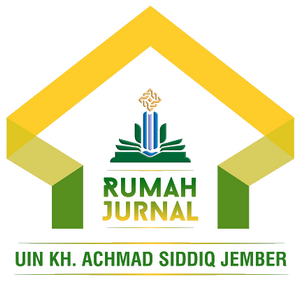The Implementation of Inclusive Education In Forming Students' Characters
DOI:
https://doi.org/10.35719/ijibs.v1i1.20This research discusses the implementation of inclusive education as a basis for shaping the character of students at the Mamba'us Sholikhin Suci Gresik Islamic Boarding School. This research paradigm uses a phenomenological paradigm, a qualitative approach, with a case study type. Data collection techniques use three types of strategies, namely qualitative interviews, qualitative observation, and qualitative documents. This research suggests that the implementation of inclusive education as a basis for forming the character of students is carried out in the form of implementing the Islamic boarding school program by implementing a curriculum that adopts a combination of salaf and modern systems that are oriented towards Gontor and Langitan Islamic boarding schools as the mecca of Arabic and English mastery programs as daily languages. - Santri day, while Langitan Islamic boarding school is the mecca of the Mambaus Sholihin Islamic boarding school in terms of its Salafiyah curriculum, besides that with the Tahfidz Quran, Tahfidz mutun, bahtsul masail fiqhiyyah, munaqosyah nahwiyyah programs.
References
Mulkhan, Abdul Munir. “Humanization of Islamic Education.” Tashwirul Afkar, Journal of Reflection on Religious and Cultural Thoughts 11 (2001): 17–18.
Amin, Abdullah M. "The Teaching of Kalam and Theology in an Era of Pluralism: A Review of Materials and Methods of Religious Education in Tashwirul Afkar, Journal of Reflec-tions on Religious and Cultural Thoughts." Edition, no. 11 (n.d.): 14.
Bakrie, Maskuri. Formulation and Implementation of Educational Policy Critical Analysis of the Learning Process. Tribakti: Journal of Islamic Thought. Vol. II. Surabaya: Visispress media, 2017.
Effendi, M R, R M Barnansyah, and S Nurpratiwi. "Inclusive Islamic Boarding School Edu-cation Model." In International Conference on Islam and Civilizations (Icic), 2019. http://sipeg.unj.ac.id/repository/upload/report/32_Proceeding_ICIC_Final_M._Ridwan_Effendi_(-min_.pdf#page=399.
Fiantika, Feny. Qualitative Research Methodology. In Qualitative Research Methodology. Rakes Sarasin. Yogyakarta: Ar-Ruzz Media, 2022.
Indonesia, President of the Republic, With Grace, God Almighty, and Almighty. “The Law Concerning the National Education System,” 1989.
Kusnandar, Ishak. Public Policy Analysis. Public Policy Analyst. Malang: Bayumedia Publish-ing, 2001.
Mas'ud, Abdurrahman. "A New Format of Religious Education in a Multicultural Society in the National Education System Perspective." In Anthology of Religion and Education Studies”, edited by Hesti Hardinah, 74–92. Semarang: CV Various Sciences, 2004.
Miles, Matthew B., and Johnny Huberman, A. Michael Saldana. Qualitative Data Analysis: A Methods Sourcebook Third Edition. USA: Sage Publications, 2014.
Nur, Sham. Coastal Islam. LKis. Yogyakarta: Lkis, 2005.
Sugiyono, Sugiyono. Understanding Qualitative Research. Bandung: CV. Alphabet, 2016.
Wahyudin, D., & Susana, R. Educational Innovation and Learning Curriculum. Learning Cur-riculum. Malang: The old city, 2011.
Downloads
Published
Issue
Section
License
Copyright (c) 2023 Muhammad Noor Bin Ali, M. Athoiful Fanan, Amriana

This work is licensed under a Creative Commons Attribution-NonCommercial 4.0 International License.
License
1. Author’s Warranties
The author warrants that the article is original, written by stated author/s, has not been published before, contains no unlawful statements, does not infringe the rights of others, is subject to copyright that is vested exclusively in the author and free of any third party rights, and that any necessary written permissions to quote from other sources have been obtained by the author(s).
2. Miscellaneous
IJIBS will publish the article (or have it published) in the journal if its editorial process is successfully completed and IJIBS or its sublicensee has become obligated to publish it. IJIBS may conform the article to a style of punctuation, spelling, capitalization, and usage that it deems appropriate.

















 IJIBS licensed under Creative Commons Attribution-NonCommercial 4.0 International License.
IJIBS licensed under Creative Commons Attribution-NonCommercial 4.0 International License.